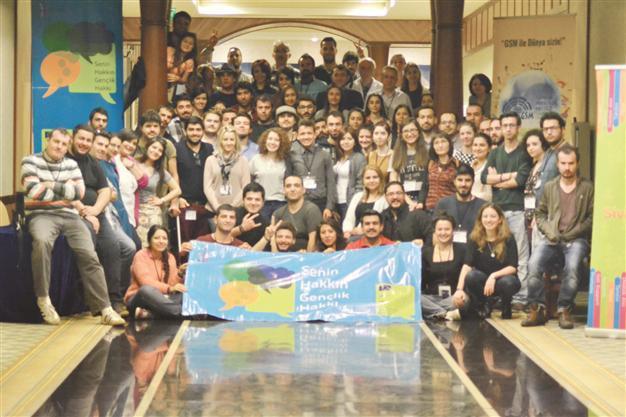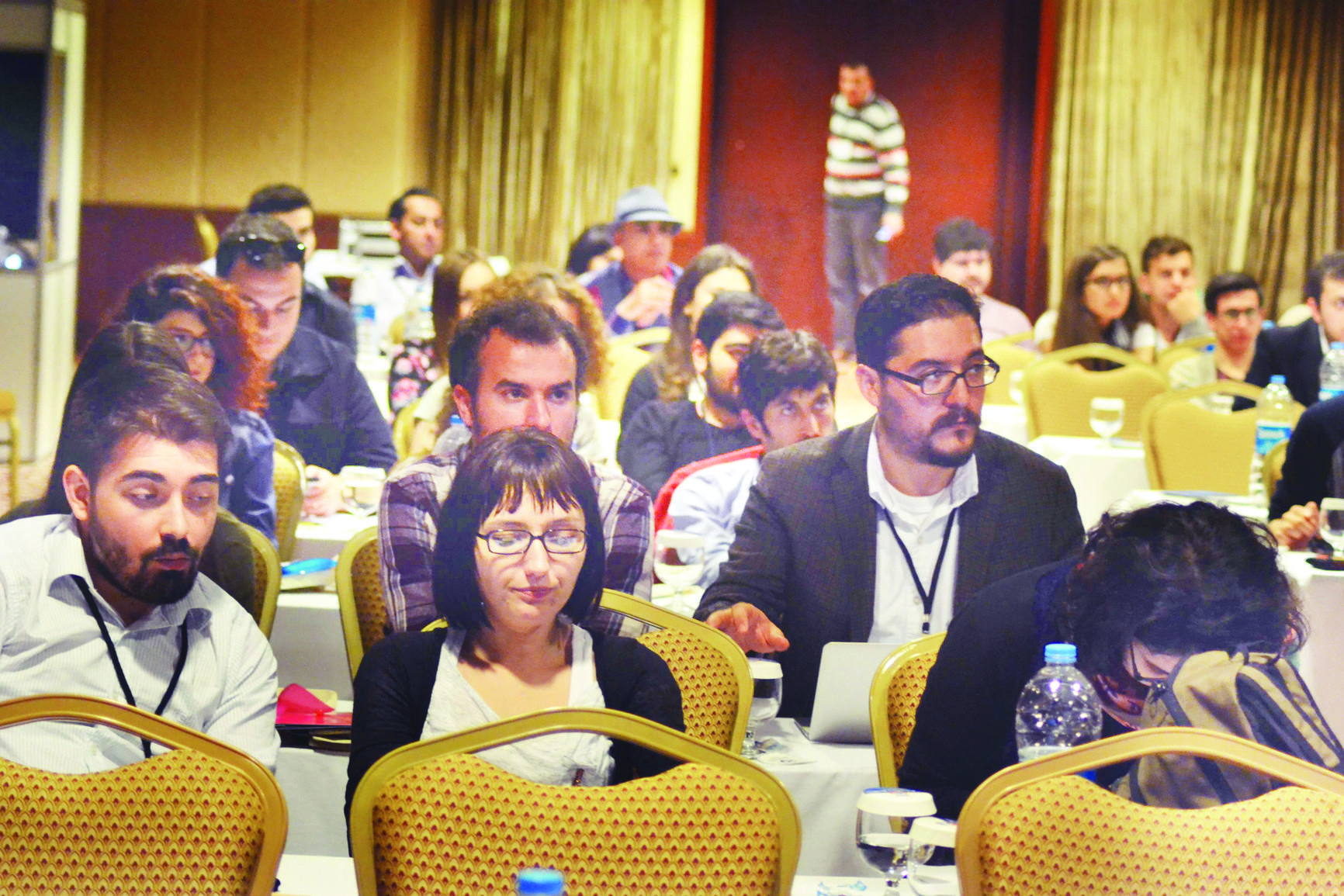Youth Day to encourage civic engagement
Emrah Güler - ANKARA

The engagement of youth in civil society will soon be a major discussion topic across the world, as Aug. 12 is International Youth Day, a day designated by the United Nations and celebrated since 2010. Each year, the U.N. sets a theme for International Youth Day, and this year’s theme is Youth Civic Engagement, a major goal of the U.N.’s System-Wide Action Plan on Youth (Youth-SWAP), carrying the U.N.’s expertise and joint programming across the world into youth development.
The hashtag #youthday has been used across social media channels, especially Twitter, to generate discussions on the engagement and participation of young people in political, economic and social platforms. The hashtag has been used to raise awareness on how crucial youth civic engagement is both for the resilience and well-being of young people themselves, as well as for sustainable human development in a broader scale.
Online campaigns and events have been the go-to tools for raising the profile of International Youth Day and spreading the discussion on youth civic engagement. Online makes sense, as 45 percent of the world’s Internet users are below 25. On Aug. 12, there will be Twitter chats on youth health, education, and gender equality, a Google Hangout on how to become a youth delegate for the U.N., as well as livestreaming of various panels across the Internet.
Networks, communities and civil society organizations across the web are asking young people to share their stories on diverse areas like the relationship between agriculture and civic engagement, mental health, migration, violence against women, poverty and employment. There is an official Google map, created by the U.N., of International Youth Day events spread across the globe.
Civic engagement of youth and youth policies have been topics of active discussion in Turkey for two decades now. Youth workers, academics and policy developers have been striving to bring forth a sound and sustainable youth policy, through both a participatory and a rights-based approach. The Youth Organizations Forum has been actively working towards an inclusive youth policy since early 2013. But there is a long history to the forum and the names behind it.
 Towards a youth policy in Turkey
Towards a youth policy in Turkey
The Youth Organizations Forum was originally established as the Turkey National Youth Council Initiative in 2003. The initiative came to a halt soon after its establishment, after the preparation of an inclusive national youth policy document. After about a decade, the forum reinitiated its work with seven youth organizations, hoping to advocate for the rights of young people in Turkey, preparing a youth policy including all young people regardless of their backgrounds and monitoring the implementation of the so-called policy.
While the forum organized local and national meetings throughout 2013, more heat was generated when two veteran organizations on youth work, the Youth Services Centre Association (GSM) and the Community Volunteers Foundation (TOG), developed a project to carry the forum further. The “Your Right, Youth Right” project, supported by the delegate of the European Union to Turkey’s civil society support program, Sivil Düşün, kicked off in early 2014 to support the work of and enlargement of the forum.
The Youth Organizations Forum, now a legal umbrella association with 26 members, organized an International Youth Symposium earlier this year, bringing together more than 100 youth organizations from 20 cities across Turkey and setting the guidelines for an inclusive youth policy in Turkey, protecting and advocating, as well as safeguarding and monitoring, the rights of young people in Turkey.
For a summary of the history of youth work and policies in Turkey, youth work-based policy proposals and the role of the state in all of this, you can read the research paper “Youth Work and Policies,” written by seasoned youth workers Gülesin Nemutlu and Yörük Kurtaran, as well as academic Professor Nurhan Yentürk.
The research book was published in 2008 by Istanbul Bilgi University’s Youth Studies Unit, established in 2005 as a joint initiative of the university with the TOG to develop youth policy proposals. You can download the book at
youthpolicy.org. Here’s to a more engaged youth across the world, and inclusive youth policies in Turkey.
 The engagement of youth in civil society will soon be a major discussion topic across the world, as Aug. 12 is International Youth Day, a day designated by the United Nations and celebrated since 2010. Each year, the U.N. sets a theme for International Youth Day, and this year’s theme is Youth Civic Engagement, a major goal of the U.N.’s System-Wide Action Plan on Youth (Youth-SWAP), carrying the U.N.’s expertise and joint programming across the world into youth development.
The engagement of youth in civil society will soon be a major discussion topic across the world, as Aug. 12 is International Youth Day, a day designated by the United Nations and celebrated since 2010. Each year, the U.N. sets a theme for International Youth Day, and this year’s theme is Youth Civic Engagement, a major goal of the U.N.’s System-Wide Action Plan on Youth (Youth-SWAP), carrying the U.N.’s expertise and joint programming across the world into youth development. Towards a youth policy in Turkey
Towards a youth policy in Turkey